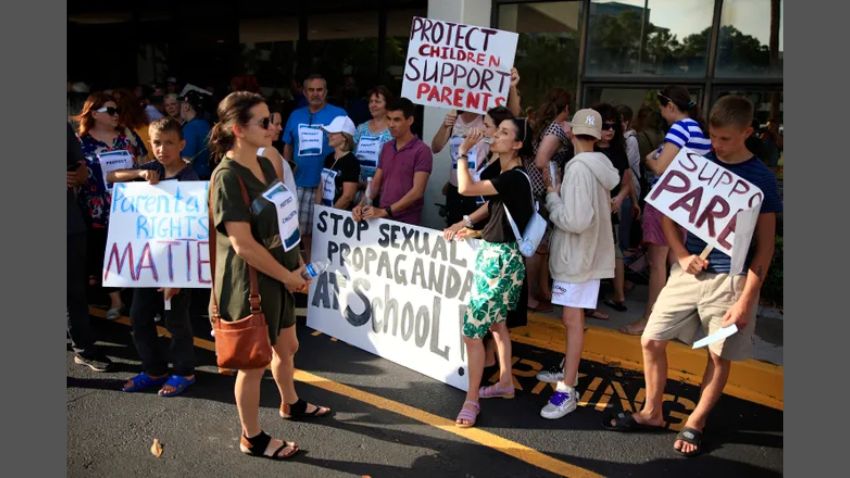
Duval school district decides to write its own material for sex-education supplement
Florida Times-Union | By Steve Patterson | September 13, 2022
Duval County’s school district will develop its own sex-education material to satisfy state laws controlling instruction on HIV/AIDS and issues surrounding sexuality, Superintendent Diana Greene told School Board members Monday.
The decision was announced as Greene asked members to withdraw a plan for “comprehensive health education” whose approval had been on the consent agenda for a regular board meeting until that afternoon.
The school system has used the same sex-education curriculum for nine years but, without speaking in specifics, Greene told the board she’d concluded it doesn’t meet some state standards.
“It has become abundantly clear to me that our internal team can create lessons and materials that serve students’ educational needs and meet our requirements under the law,” Greene said in a statement emailed about an hour before the meeting began.
“Starting from scratch and adhering to the boundaries of Florida statute will be a far easier task than trying modify or find existing publisher materials,” she said.
Supporters and critics of the established curriculum dominated about 75 people who shared their views during hours of public comment.

A posting on a school district website Monday said that state law requires use of state-approved texts for health education, but that those texts don’t address everything state law requires in health instruction.
“Therefore, it is necessary for districts to purchase or create supplemental materials to meet the requirements of law,” said the posting by a district spokesman.
No timeframe was set for developing the local supplement, but the posting said district staff “will be working to ensure students in current academic year health classes receive legally required instruction.”
After Greene said the subject had “stirred emotion” in the public, board member Elizabeth Andersen said she was concerned “we are reacting … instead of looking at what is good for children” by withdrawing the curriculum on short notice.
“We have taught this curriculum for nine years. Now we’ll move into this school year without a health curriculum,” said Andersen, who likened the decision to the district’s rebranding of the “All In For Safe Schools” campaign, a change that LGBTQ advocates criticized as having left classrooms “stripped bare of all visible support for LGBTQ students.”
Comments by Andersen, who said that “we need to stay focused on what’s good for kids,” were followed by a mix of applause and boos from audience members who were cautioned against outbursts.
Last year’s Duval County Youth Risk Behavior Survey found that 11.3 percent of middle school students and 32.5 percent of high school students reported having ever had sexual intercourse, with 23.5 percent saying they were currently sexually active, the school district reported.
Vice-chair Kelly Coker said withdrawing the subject from action “does not mean we won’t have comprehensive sex education,” but said extensive public comments have shown that “there is a heightened scrutiny” to how the district handles the subject.
Member Warren Jones said levels of sexually transmitted diseases in Duval County underscore the value of having comprehensive education to protect public health.
“There are some in this community that feel that we don’t need to teach this at all. Unfortunately, the data shows that … education is very much needed,” Jones said.
Any new sex-education curriculum will be available for public review at least 20 days before a board vote on its adoption, the school district said.





